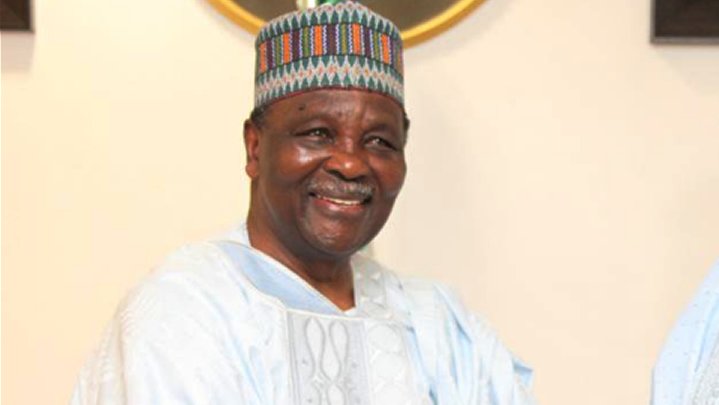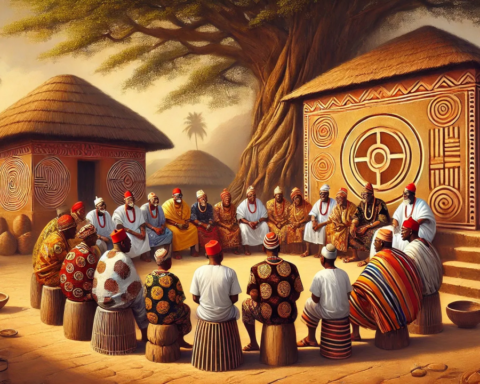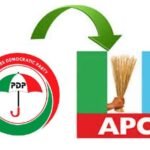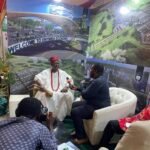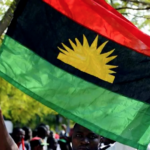Abraham Lincoln was the 16th president of the United States, serving from 1861 until his assassination in 1865. He led the United States through the American Civil War, defending the nation as a constitutional union, defeating the Confederacy, playing a major role in the abolition of slavery, expanding the power of the federal government, and modernizing the U.S. economy. Like Lincoln, Gowon led Nigeria through a civil war.
Ace novelist Chinua Achebe famously asserted that proverb is the palm oil with which Igbos eat words. The Igbos, found mostly, in South-East zone and parts of South-South zone in Nigeria, are famous for their industry and wise cracks. Their wise cracks are often strewn in proverbs one of which is that the lizard fell down from the Iroko tree, looked right, looked left and congratulated itself. The lizard insisted that it will congratulate itself for such a rare feat if no one is willing to do so.
Like the proverbial lizard, Nigeria’s second military head of state (July 1966 – July 1975), General Yakubu Gowon has opted to congratulate himself when it seems that Nigerians are not very lavish with their praises for his nine years stewardship at the helms of affairs in the country. Gowon used the occasion of his recent 90th birthday celebration to commend himself. And he uncannily equated himself with the American legend Abraham Lincoln. Not a few were amused by such a parallel nay-otiose comparison but the genial general expects to be taken seriously and perhaps addressed as the Abraham Lincoln of Nigeria.
Abraham Lincoln was the 16th president of the United States, serving from 1861 until his assassination in 1865. He led the United States through the American Civil War, defending the nation as a constitutional union, defeating the Confederacy, playing a major role in the abolition of slavery, expanding the power of the federal government, and modernizing the U.S. economy. Like Lincoln, Gowon led Nigeria through a civil war.
Lincoln was born into poverty in a log cabin in Kentucky and was raised on the frontier, mainly in Indiana. Gowon was not born into wealth and was raised in Wusasa near Zaria in today’s Kaduna State. Lincoln was self-educated and became a lawyer, Whig Party leader, Illinois state legislator, and U.S. representative from Illinois. In 1849, he returned to his successful law practice in Springfield, Illinois. Gowon, a soldier, had the best of military training at the world-renowned Sandhurst Military Academy. After he was ousted from power in 1975, he returned to school, earning a doctorate degree in Political Science from Warwick University in the United Kingdom, and becoming a visiting Professor of Political Science at the University of Jos
Abraham Lincoln reached a national audience in the 1858 Senate campaign debates against Stephen A. Douglas and ran for president in 1860, sweeping the North to gain victory. Gowon on the other hand, capitalised on the grievances by majority of Nigeria’s North to tacitly support a coup against Major General Aguiyi Ironsi, the supreme commander and his boss, to emerge as head of state.
Gowon’s ascendancy was resisted by the then Military Governor of Eastern Nigeria Lt. Col Chukwuemeka Odumegwu Ojukwu. He insisted that rank seniority in the army must subsist and strictly adhered to. Ojukwu’s insistence on adherence to military hierarchy drew the ire of Gowon who retaliated by hounding Ojukwu’s Eastern Nigeria. Like the pro-slavery elements in the South who viewed Lincoln’s election as a threat to slavery, and Southern states began seceding from the nation, Ojukwu could not countenance the emergence of Gowon as head of state. And like the Confederate States of America, which seized federal military bases in the South, Ojukwu’s Eastern region government impounded a Nigeria Airways plane amongst others.
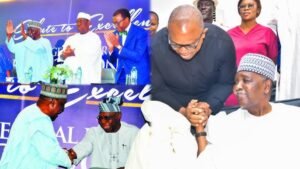
A little over one month after Lincoln assumed the presidency, the Confederate forces attacked Fort Sumter, a U.S. fort in South Carolina, compelling him to mobilize forces to suppress the rebellion and restore the union. For Gowon, he had to deal with secession in less than a year in office. Unlike Lincoln, a moderate Republican, who had to navigate a contentious array of factions with friends and opponents from both the Democratic and Republican parties, Gowon, a military dictator, first ordered a police action and later an all out war. It is this war that has largely defined Gowon’s legacy. His other consequential action, if we are to ignore his weak leadership, was reneging on his promise to return Nigeria to civil rule in 1976.
Lincoln is often ranked in both popular and scholarly polls as the greatest president in American history and is remembered as a martyr and a national hero for his wartime leadership and for his efforts to preserve the Union and abolish slavery. Wither Gowon! It bears repeating that the Nigeria-Biafra war, often referred to as the Nigeria Civil war (1967 – 1970), was the watershed of Gowon’s nine years rule. Perhaps, conscious of the need to set his own narrative, Gowon granted a rare interview to the Daily Trust on Saturday, October 19, 2024, to mark his 90th birthday anniversary.
The rare interview, conducted by Andrew Agbese and Isiaka Wakili was very illuminating. It has expectedly elicited responses from some quarters. A notable reposite came from the assiduous researcher, cerebral writer and celebrated author Chuks Iloegbunam whose Open Letter to the general, published in Saturday Vanguard of October 26, 2024, was entitled GOWON! Faith, without good works, is dead.
Gowon is seen as a counterfeit unifier he is on record to have in his maiden nationwide broadcast as head of state on Monday, August 1, 1966, stated that there was no basis for Nigerian unity. Hear him “As a result of the recent events and of previous ones, I have come to strongly believe that we cannot continue in this wise, as the basis for trust and confidence in our unitary system of government has been unable to stand the test of time. I have already remarked on the issue in question. Suffice it to say that putting all considerations to the test, political, economic as well as social, the basis of unity is not there”.
Gowon gave tacit approval to the countercoup of July 1966 – the bloodiest putsch in African history in which about 38 Igbo officers and 128 other ranks were killed. This excludes the 50,000 Igbo men and women massacred in the pogroms that took place across much of the country between May and October 1966.
Gowon is accused of waging a war of attrition that circumvented the 1949 Geneva Conventions protocols during the civil war: Everything and anything in Biafra was fair game for Gowon and his soldiers.
Gowon was believed to be a weak leader who couldn’t control his appointees and some members of his supreme council. He was believed to be lily- livered and unable to reshuffle his cabinet and his Federal Commissioner (Minister) for Communications Brigadier Murtala Mohammed was said to be uncontrollable and on one or two occasions dared Gowon to do his worst.
Gowon was believed to have been privy to the February 13, 1976 abortive coup led by Lt. Col Bukar Suka Dimka in which the then head of state General Murtala Mohammed was assassinated.
Many Nigerians believe that a more circumspect leader would have laid a solid foundation for national rebirth after the Nigeria civil war. Instead Gowon instituted a tame programme of Reconstruction, Reconciliation and Rehabilitation (Three Rs).
All these and more are the reasons why Nigerians don’t reckon much with General Yakubu Gowon in spite of his personal charm and conviviality. To them Gowon is still a long way from being Nigeria’s Abraham Lincoln.
Follow us on our social media channels for updates on stories @dailyquery_ for X , @dailyquery for Instagram and @dailyquery for Facebook
